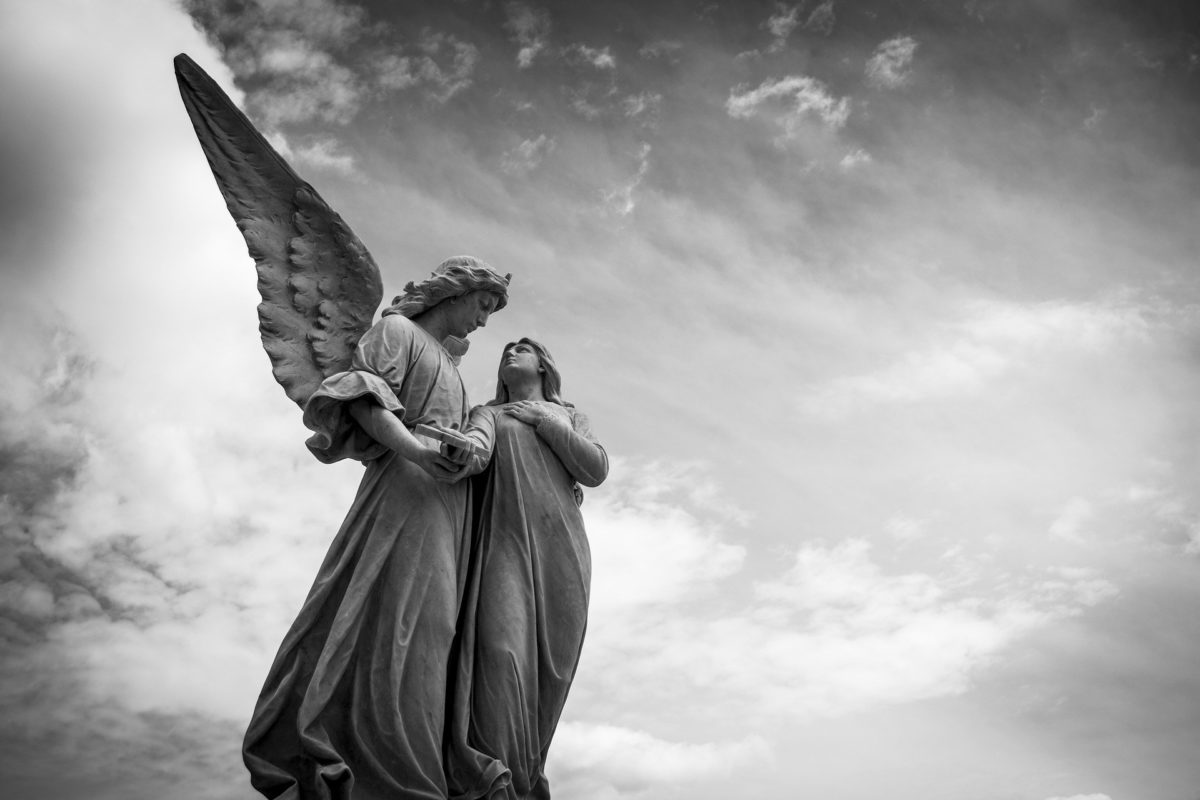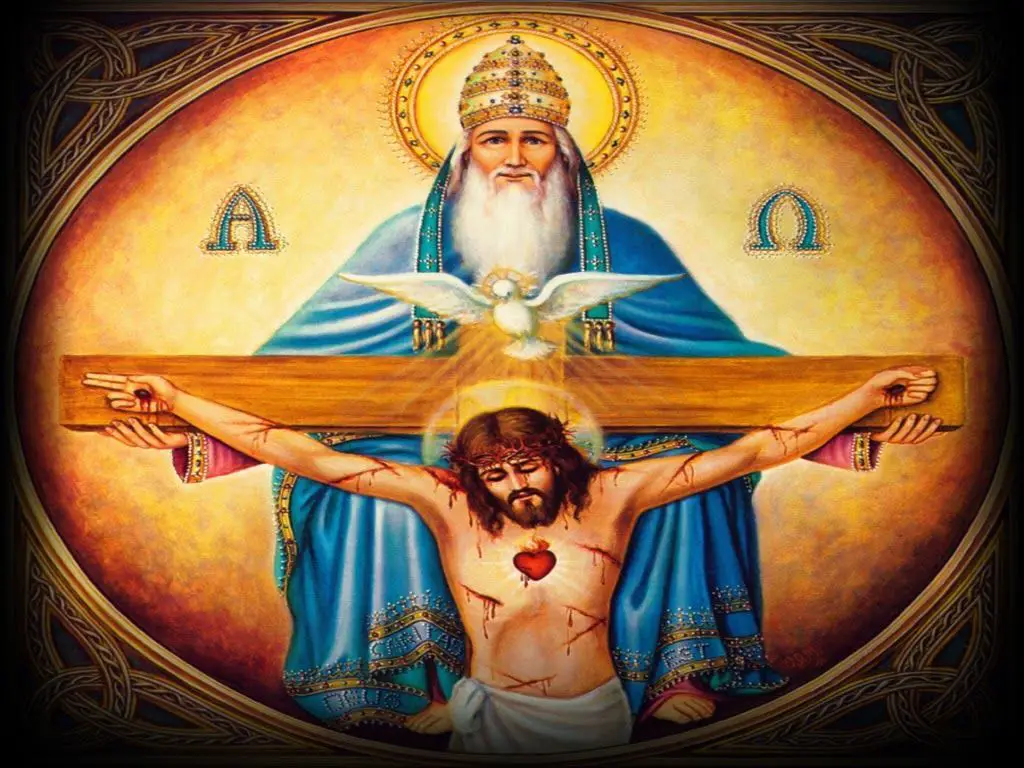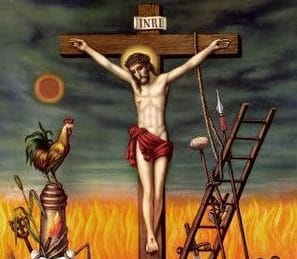The foundations of Christianity are derived from Judaism and the teachings of Jesus Christ and his 12 apostles. Christianity is a monotheistic religion, like Judaism and Islam, and is practised by large numbers of believers around the world.

How did Christianity begin?
Christianity began as a messianic movement in the year 1 B.C. with the birth of Jesus of Nazareth in Judea, now Israel, who came to save not only the Jewish people, who had rejected him as God, but all the Gentiles and the rest of humanity. Although he was unjustly crucified by the Romans and rejected by the Jews, he was spread throughout the world by his disciples, based on the idea of resurrection (see article Christianity and Judaism).
What are the foundations of Christianity?
The Bible is the foundational book of Christianity, to which are added the Gospels, or life of Jesus, and other writings that form part of the New Testament. These seem to have been written by Moses, David, Solomon, Ezra and others, telling of the life and relationship of God with the Jewish people (see article: How to study the Bible with joy).
Many Jewish customs and beliefs coincide with Christian ones, the Bible and the Jewish Torah coincide, but the Jews thought that God was exclusive to them and the Christians preached Him as the God of all and for all mankind.
Christians owe their formation to the 10 Commandments given by God to Moses on Mount Sinai, reformed by Jesus Christ, which are
To love God above all things.
Do not take God’s name in vain.
Keep the festivals holy.
Honour father and mother.
Not to kill.
Commit no unclean thing.
Do not steal.
Not to bear false witness or lie.
Not to indulge in unclean thoughts and desires.
Not to covet the goods of others.
Essential Teachings of Christianity
By its very nature, the doctrine of God must be obeyed, so it cannot be speculative or abstract. What is written in the Bible must be believed by Christians in order to achieve salvation. It contains the essential doctrines necessary for the Christian faith:
1) The deity of Christ
2) Salvation by grace
3) The resurrection of Christ
4) The gospel
5) Monotheism or belief in one God. There is no polytheism or composite deities, let alone demigods.
There are some other important secondary doctrines, including the Trinity: Father, Son and Holy Spirit (see article: Who is God).
Biblical foundations
Biblical principles or foundations are fundamental in Christian churches that believe in Jesus Christ, the Son of God. Lack of knowledge is the cause of the rise of various sects and false religions that contribute to the misinterpretation of Scripture.
It is important for God’s people to have a solid foundation, such as the Bible, to guide us on what is important and necessary for salvation. The priorities of Christians should be focused on the Lord and His Word (see Church Commandments article).
- Fellowship with God
Prayer
Study of God’s Word
Worship
Fellowship - Family time
Dedication to the Lord for the whole family
Family Order - The Church
- The Work

Ethical foundations
The ethical foundations of Christianity are laid down in the Ten Commandments, which are regarded as divine law.
Jesus said in his Sermon on the Mount that it is not enough to believe, but to keep these ten commandments:
You shall love God above all things.
Thou shalt not take the name of God in vain.
Thou shalt keep the Sabbaths holy.
Thou shalt honour thy father and thy mother.
Thou shalt not kill, thou shalt not murder.
Thou shalt not commit adultery.
Thou shalt not steal
Thou shalt not bear false witness
Thou shalt not indulge in unclean thoughts and desires.
Thou shalt not covet another’s goods.
Failure to obey these commandments is considered a serious sin.
Philosophical foundations of Christianity
The main areas of philosophy relevant to Christianity are ethics, science, logic, truth and scepticism, as well as some issues of philosophy of religion, ontology, epistemology and metaphysics.
Christianity was formed on the basis of various messianic sects, taking elements from religions such as Greco-Roman and Eastern religions, and philosophers such as Philo of Alexandria and Seneca. (See article: Messianic Jews)
Their main belief is in the resurrection of the Son of God, Jesus Christ, who was executed by Pontius Pilate, the governor of Judea, but rose from the dead and ascended into heaven, making possible the resurrection of his followers.
Christian believers believe in the future return of Christ, their Messiah, to earth to judge the living and the dead, reward the righteous and condemn sinners to the sufferings of hell or purgatory.
In 1054, Christianity split into two strong currents: Catholicism, or the Western Church, and Orthodoxy, or the Eastern Church. The Reformation of the 16th century saw the emergence of a third strand of Christianity: Protestantism, which was a highly influential, anti-feudal, anti-Catholic movement in Europe.
These streams are further subdivided into smaller Christian denominations whose differences are based on the interpretation of some theological and worship issues, but whose basic Christian principles remain unchanged.

Foundations, dogmas and mysteries
Dogma can be understood as a truth in the field of faith or morals, revealed by God through the Apostles and the Holy Scriptures, and proposed by the Church for acceptance by the faithful. In other words, a dogma is a revealed truth defined by the Church. Some dogmas are
Dogmas about God
- The existence of God
“The idea of God is not innate in us, but we have the capacity to know Him easily and in a certain way spontaneously through His work.
- The existence of God as an object of faith
“The existence of God is not only an object of knowledge of natural reason, but also an object of supernatural faith.
- The unity of God
“There is only one God.
- God is eternal
“God has no beginning and no end.
- The Holy Trinity
“There are three persons in God: God the Father, Son and Holy Spirit, and each of them possesses the divine essence, which is numerically equal”.
Dogmas about Jesus Christ
- Jesus Christ is the true God (John 10:30) and the Son of God in essence.
“The dogma says that Jesus Christ possesses the infinite divine nature with all its infinite perfections, having been eternally begotten of God.
- Jesus possesses two natures, which are not transformed or mixed.
“Christ is the possessor of an integral divine nature and an integral human nature: the proof is in the miracles and in the suffering.
- He offered Himself on the Cross for His true and proper sacrifice.
“By His human nature, Christ was both priest and victim, but by His divine nature, together with the Father and the Holy Spirit, He was the recipient of the sacrifice”.
- By dying a sacrificial death on the cross, he redeemed us and reconciled us to God.
“Jesus Christ wanted to offer Himself to God the Father in His death on the cross as a sacrifice to obtain for them eternal forgiveness”.
- On the third day after his death, Christ rose from the dead in glory.
“On the third day, having been raised by His own strength, He rose from the grave.
- He ascended body and soul to heaven and is seated at the right hand of God the Father.
“He rose from the dead and ascended into heaven, body and soul.
The Council of Nicaea (325 AD) played an important role in the further development of Christianity and the establishment of church organisation and worship, where the “Symbol of Faith”, a brief statement of the fundamental Christian dogmas, was drawn up. Today, there is no single Christianity with the same dogmas, worship and rituals.

Foundations of Christian Marriage
Marriage is a wise institution of the Creator to fulfil His loving plan for humanity. Men and women perfect and grow in this sacred union, working with God to bring forth new life. Through marriage they help to build a new community, which involves a commitment to help each other grow and thus attain salvation.
The essential characteristics of marriage are Unity (of one, with one), indissolubility (forever) and openness to fruitfulness, since marriage is for procreation. The Christian conjugal bond is unique, that is, exclusive, between a man and a woman, and indissoluble.
In marriage the spouses give themselves to each other, uniting their minds, wills and emotions, having the same desires and aims.
Marriage is similar to a contract in which the contracting parties (man and woman) are involved; the object is the mutual donation of their bodies in order to live a conjugal life; the consent is expressed by both contracting parties and the ends are mutual help, procreation and education of children.




